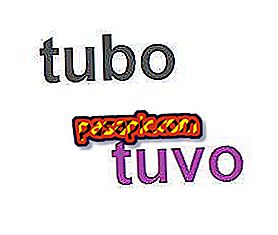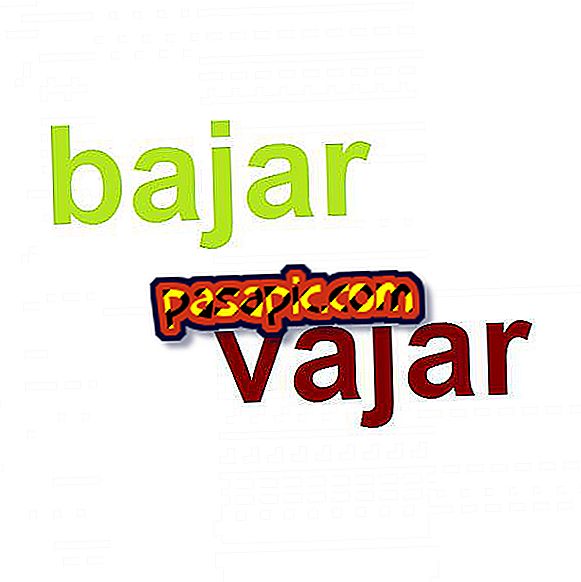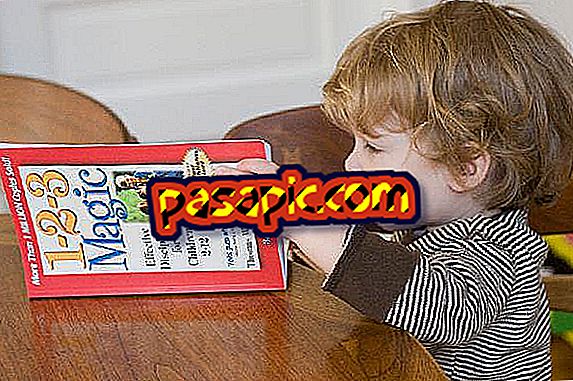Can dogs eat bread?

There are many myths regarding the feeding of dogs and bread is one of them. It is a food that is part of our food pyramid since, human beings, we need the energy that carbohydrates give us as bread to allow our body to work perfectly both inside and out. But it is also true that, each time, these products are abundant in our diet and we take it in larger quantities than we really need doing, so that there are more obesity and people who are overweight now than they were years ago.
In this article we are going to tell you if dogs can eat bread or not so you know if, that habit of giving leftovers from your food to the animal, is in this case good or bad.
Can dogs eat bread? - we clarify it
There are some foods that are not beneficial for feeding dogs because they are toxic and can cause adverse reactions such as vomiting, discomfort, fatigue, weakness, and so on. But can dogs eat bread? There is a controversy regarding this issue but, in general, we must indicate that it does not have to be bad as long as you do not overdo the amount you give.
Many people give their dogs hard breads so they can bite and, thus, clean their teeth and strengthen their teeth. This is a good practice but, nevertheless, you should not go over the amount of bread you give the animal because, in the long run, it could be fatal for him. Think that the excess of bread can stick in the walls of the stomach, produce an empacho and finish fermenting in the interior, something that, in the long run, can cause him strong annoyances and, in the most serious cases if it repeats frequently this form of feeding, until death.
In order for your dog to be in perfect health conditions, it is advisable to eat, mainly, your usual food . It is the most appropriate way to care for the animal and avoid poisoning, bad digestion or any adverse effect.
You can detect a food intolerance if you notice that the dog begins to experience symptoms such as the following:
- Diarrhea
- Vomiting
- Tired
- Apathetic
- The mucous membranes of the stool present a yellowish color
If you detect that the animal presents this medical picture, it is best that you take it to a veterinarian so that, if it is the case, you do a stomach wash. Surely it will give you a medication to follow as well as the guidelines of a soft diet that is indicated to recover the well-being of the dog.
So, answering your question about whether dogs can eat bread or not, the answer is YES but in moderation . You can give him a piece of hard bread two or three times a week to clean and strengthen his teeth but never exceed with the amounts you give him, much less, that the bread is recurrent in the diet because, as we have said, it can ferment and harm the animal

How to give bread to a dog in a healthy way
Now that you know that bread is not one of the most harmful foods for dogs, you should know what is the best way for you to eat it without damaging your stomach or internal organs. The first thing you should keep in mind is that, as we have already pointed out, you should consider bread as a reward in the animal's diet, so you can give it pieces sporadically but NEVER daily .
The bread dough that you give to the dog should be well cooked, never raw or fried. Think that if you give raw dough, the bread will ferment in the stomach of the animal very quickly and could cause serious discomfort. It is also not recommended that it be fried in oil because you bring a lot of saturated fats and calories to the animal that does not need it and that can produce side effects such as overweight, breathing difficulties, heart failure, and so on.
Of all the breads that exist, the most recommended is artisanal bread since it does not contain chemicals or additives that alter the nutritional value of the food. Giving him a homemade bread you will get that the dog can take advantage of the benefits of his take as, for example, a greater salivation and, therefore, a dental cleaning, stronger gums, reinforced teeth, etcetera.

Prohibited food for dogs
Bread is a food that can be part of a dog's diet, as long as the considerations just mentioned are taken into account. However, there are other foods that we should not give to these animals because they are toxic and could be harmful to their health, or they are simply not a healthy option for them, which does not mean that it intoxicates them but it does mean that they will not sit well with them. . Next, we will discover some of these ingredients so that you avoid giving them to the animal, especially in large quantities or if it does not tolerate them well, no matter how small.
Onion and garlic
In high doses are toxic to dogs because they contain n-propyl disulfide, a substance that in contact with the body of the animal can cause diarrhea, vomiting but also respiratory problems or the appearance of blood in the urine. However, in small doses appropriate to the size of the dog, garlic and onions have great benefits.
Chocolate
Dogs should not be given chocolate because they have theobromine, a substance that if accumulated in the body, is toxic to dogs. In addition, with a simple piece the dog may feel ailments or pains in the stomach, nausea, diarrhea, etc. Again, these are cases in which the dose is excessive.
Dairy products
There are many people who say that milk is good for dogs and cats, as well as many who say otherwise. However, the most recent studies on this, indicate that after the lactation period, dogs should not continue taking dairy because they can develop lactose intolerance; exactly as it happens to people.
Therefore, you can give milk, cheese, yogurt, butter, etc., but with moderation and assessing in each case if the animal feels good or if it has intolerance, in which case we will avoid giving it to them.
Actually all are good food for dogs, as for us, because the key is in what part of the food is given (for example, it is not convenient that they eat neither the bone nor the skin of the avocado but they can eat their pulp), what dose is given and how often. Therefore, it happens just like with us and, in fact, the prohibited foods for dogs that we really should not give them are never the same ones that are not recommended to us: fast food or with a large amount of saturated fats, ultra-processed foods, alcoholic beverages, etc.
In this other article we discover what are the toxic foods for dogs, with updated information and scientific studies of reference.


